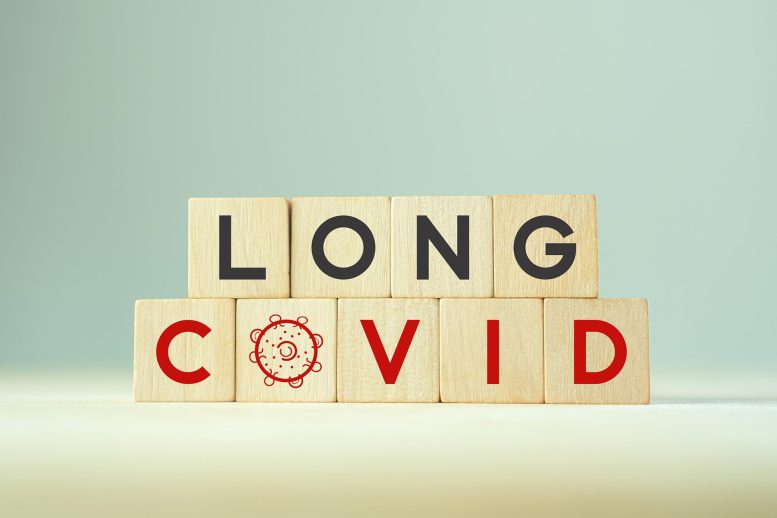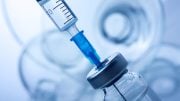
A recent study from Columbia University explores the persistent impact of COVID-19, revealing that long COVID affects individuals differently based on factors like vaccination status and pre-existing health conditions.
Research by Columbia University on over 4,700 participants shows that long COVID has a varied impact, influenced by vaccination status and pre-existing conditions. Vaccinated individuals and those with milder initial infections tended to recover faster, while certain groups, such as women and individuals with cardiovascular issues, took longer.
Early in the pandemic, many people who had SARS-Cov-2 infection or COVID-19 began to report that they couldn’t shake off their symptoms even after a month or more—unusually long for a viral infection of the upper respiratory tract—or developed new, persistent symptoms soon after the infection cleared.
New Insights from Columbia University Research
Although it’s still not clear what causes post-COVID-19 conditions or “long COVID” (symptoms and conditions that develop, linger, or reoccur weeks or months after SARS-CoV-2 infection), a new study by researchers at Columbia University Vagelos College of Physicians and Surgeons confirms the high burden of long COVID and sheds light on who’s at greatest risk.
The study found that people with a milder infection—including those who were vaccinated against SARS-CoV-2 and those who were infected with an Omicron variant—were more likely to recover quickly.
Recovery time was similar for subsequent infections.
“Our study underscores the important role that vaccination against COVID has played, not just in reducing the severity of an infection but also in reducing the risk of long COVID,” says Elizabeth C. Oelsner, the study’s lead author and the Herbert Irving Associate Professor of Medicine.
Comprehensive Study Overview and Participant Data
The study involved over 4,700 participants from the Collaborative Cohort of Cohorts for COVID-19 Research (C4R), who were asked to report their time to recovery after infection with SARS-CoV-2.
The study found that, between 2020 and early 2023, the median recovery time after SARS-CoV-2 infection was 20 days, and more than one in five adults did not recover within three months.
Factors Influencing COVID-19 Recovery Times
Women and adults with pre-pandemic cardiovascular disease were less likely to recover within three months. Other pre-pandemic health conditions—including chronic kidney disease, diabetes, asthma, chronic lung disease, depressive symptoms, and a history of smoking—were linked to longer recovery times. However, these associations were no longer significant after accounting for sex, cardiovascular disease, vaccination, and variant exposure.
“Although studies have suggested that many patients with long COVID experience mental health challenges, we did not find that depressive symptoms prior to SARS-CoV-2 infection were a major risk factor for long COVID.”
Impact of Pre-Existing Conditions and Demographics on Long COVID
Other groups disproportionately affected by long COVID were American Indian and Alaska Native participants, in whom severe infections and longer recovery times were more common.
“Our study clearly establishes that long COVID posed a substantial personal and societal burden,” says Oelsner. “By identifying who was likely to have experienced a lengthy recovery, we have a better understanding of who should be involved in ongoing studies of how to lessen or prevent the long-term effects of SARS-CoV-2 infection.”
Reference: “Epidemiologic Features of Recovery From SARS-CoV-2 Infection” by Elizabeth C. Oelsner, Yifei Sun, Pallavi P. Balte, Norrina B. Allen, Howard Andrews, April Carson, Shelley A. Cole, Josef Coresh, David Couper, Mary Cushman, Martha Daviglus, Ryan T. Demmer, Mitchell S. V. Elkind, Linda C. Gallo, Jose D. Gutierrez, Virginia J. Howard, Carmen R. Isasi, Suzanne E. Judd, Alka M. Kanaya, Namratha R. Kandula, Robert C. Kaplan, Gregory L. Kinney, Anna M. Kucharska-Newton, Daniel T. Lackland, Joyce S. Lee, Barry J. Make, Yuan-I. Min, Joanne M. Murabito, Arnita F. Norwood, Victor E. Ortega, Kelley Pettee Gabriel, Bruce M. Psaty, Elizabeth A. Regan, Daniela Sotres-Alvarez, David Schwartz, James M. Shikany, Bharat Thyagarajan, Russell P. Tracy, Jason G. Umans, Ramachandran S. Vasan, Sally E. Wenzel, Prescott G. Woodruff, Vanessa Xanthakis, Ying Zhang and Wendy S. Post, 17 June 2024, JAMA Network Open.
DOI: 10.1001/jamanetworkopen.2024.17440









And the research was brought to you by Pfizer. I mean, Columbia University and Pfizer are literally partners. Conflict of interest much?